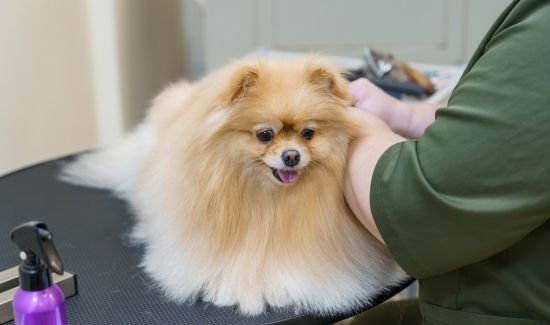Table of Contents
- Introduction
- Understanding Pet Skin Problems and Itching Causes
- Common Skin Conditions in Dogs and Cats
- Environmental Triggers for Pet Itching
- The Role of Allergies in Pet Skin Issues
- Indications Your Pet Needs Skin Care Right Away
- Essential Pet Grooming Practices for Healthy Skin
- Proper Bathing Techniques and Frequency
- Choosing the Right Grooming Tools
- Professional Veterinary Treatments and Solutions
- Common Skin Issues and Their Treatments
- Say Goodbye to Itching with These Pet Skin Care Tips
- Daily Skin Care Routines
- Preventive Measures
- Emergency Relief Strategies
- Natural Remedies and Home Solutions for Pet Skin Care
- Safe DIY Treatments
- Dietary Supplements for Skin Health
- Creating a Pet-Friendly Environment for Optimal Skin Health
- Conclusion: Building a Comprehensive Pet Skin Care Routine
- FAQ
- Common Skin Conditions
- Environmental Triggers
- Allergies and Skin Issues
- Signs for Immediate Attention
- Best Practices for Bathing
- Veterinary Treatments
- Natural Remedies
- Impact of Home Environment
Say Goodbye to Itching with These Pet Skin Care Tips
Ever pondered the cause of your pet’s excessive itching? Pet skin care is very important for their health. Knowing what causes skin problems helps stop the itching.
Pet skin issues can come from allergies, the environment, or health problems. So, taking care of their skin is very important.
By taking good care of your pet’s skin, you can make them itch-free. This way, they can be happier and healthier. The right skin care can really help your pet feel better.
Key Takeaways
- Proper pet skin care is essential for alleviating itching problems and improving pet health.
- Pet skin issues can be caused by various factors, including allergies and environmental triggers.
- Prioritizing pet skin care can help you say goodbye to itching with these pet skin care tips.
- Understanding the underlying causes of skin issues is key to providing pet itching relief.
- By focusing on pet skin care, you can help your pet live a healthier, happier life.
- Pet skin care is a critical part of their overall health and happiness.
Understanding Pet Skin Problems and Itching Causes
Pet skin issues are a big worry for pet owners. Allergies are a main reason for these problems. They can hurt the skin’s protective layer and cause swelling.
This swelling makes it easy for infections to start. Pet skin allergies can come from many things, like the environment, food, and parasites.
Some common skin problems in dogs and cats include allergies to the environment and flea bites. These issues need treatment, which can be creams, pills, or shotsThe first step in resolving the issue is identifying its root cause.
Common Skin Conditions in Dogs and Cats
- Atopy: an allergic reaction to environmental substances
- An allergic response to flea bites is known as flea allergy dermatitis.
- Food allergies: an adverse reaction to certain ingredients in food
Environmental Triggers for Pet Itching
Things like grass, pollen, and dust can make pet skin problems worse. Keeping pets clean can help. Using special pet shampoos can also soothe their skin.
The Role of Allergies in Pet Skin Issues
Allergies are a big deal for pets, with up to one-third of dogs having them. Fleas and ticks can make pets allergic. Mites can really hurt a dog’s skin. Getting rid of allergens is key to stopping itching, even if it’s hard.
| Common Allergens | Effects on Pets |
| Fleas | Allergic skin reactions, itching, and inflammation |
| Ticks | Allergic skin reactions, itching, and inflammation |
| Mites | Significant harm to a dog’s skin, itching, and inflammation |
Indications Your Pet Needs Skin Care Care Right Away
As a pet owner, it’s key to know when your pet needs skin care fast. Look for signs like too much scratching, red skin, hair loss, and irritation. These can mean allergies, bad environment, or bugs.
Watch for itchy skin, paw licking, face rubbing, and scratching. If you see these, your pet needs help to avoid worse problems. Keeping their skin healthy is important for their happiness and health.
https://youtube.com/watch?v=3AVcb5LfgWk
Seeing a vet is the first step to find out why your pet’s skin is a problem. They can tell you the best way to fix it. This might include special food, changes in what they eat, or how they live.
| Common Skin Issues in Pets | Causes | Symptoms |
| Food Allergies | Reactions to certain ingredients | Itchy skin, hives, swelling, ear infections |
| Environmental Allergies | Reactions to dust, pollen, mold | Itchy skin, redness, skin irritation |
| Parasites | Fleas, mites, ticks | Itchy skin, hair loss, skin irritation |
Spotting skin problems early and getting help fast is key. This way, your pet gets the care they need to stay healthy and happy.
Essential Pet Grooming Practices for Healthy Skin
Regular grooming is key for healthy skin in pets. It helps prevent skin problems and stops itching. For example, dogs with allergies find comfort in regular baths and grooming.
Choosing the right grooming tools is vital. Different brushes suit different dog hair types. Brushing regularly keeps mats away and stops itching. It’s best to brush at least once a week.
Proper Bathing Techniques and Frequency
Dogs usually need a bath every 4 to 6 weeks. Short-haired dogs might need baths less often. Long-haired dogs might need baths once a month.
Conditioning a dog’s coat after every bath is important. Use mild dog shampoos and conditioners without dyes or soap. This prevents skin irritation.
Choosing the Right Grooming Tools
There are many grooming tools for dogs, like brushes and nail clippers. Use natural and eco-friendly products for healthy skin. Regular nail trimming keeps dogs comfortable and safe.
Professional Veterinary Treatments and Solutions
Pets with skin problems can get better with vet help. Vets use special shampoos, creams, and pills to heal their skin. These treatments can make pets feel better.
Vets say it’s key to find the right treatment for pets. They might use creams, pills, or change how pets live. Always talk to a vet to find the best way to help your pet.
Pets can get sick from allergies, flea bites, and mites. Allergies make pets itch and lose hair. Flea bites can make things worse. Mites cause pets to itch a lot.
| Skin Condition | Causes | Treatment |
| Allergies | Environmental allergies, flea bites | Medicated shampoos, topical treatments, oral medications |
| Mange | Mites like Demodex, Cheyletiella, and Sarcoptic | Topical treatments, oral medications, lifestyle changes |
| Flea bite allergies | Flea bites | Medicated shampoos, topical treatments, oral medications |
Working with a vet can help your pet feel better. Follow their advice to keep your pet happy and healthy. Consult a veterinarian before attempting any new therapies.
Say Goodbye to Itching with These Pet Skin Care Tips: A Complete Guide
Itching pets can be tough to fix. But, the right pet skin care can help. A good routine includes daily care, prevention, and emergency help. These steps can make pets feel better and keep their skin healthy.
Daily Skin Care Routines
Every day, pets need grooming, baths, and special skin care products. These products moisturize and calm the skin. A healthy diet with omega-3 fatty acids also helps keep the skin barrier strong.
Preventive Measures
Preventing itching is key. Use flea and tick control to keep pets comfortable. Regular vet visits can catch skin problems early, helping pets feel better fast.
Emergency Relief Strategies
When itching gets bad, quick action is needed. Anti-itch meds, corticosteroids, or vet-prescribed treatments can help. Always work with a vet to find the best treatment for your pet.
| Pet Skin Care Product | Benefits |
| Omega-3 fatty acids | Maintains healthy skin barrier |
| Anti-itch medications | Provides quick relief from itching |
| Corticosteroids | Reduces inflammation and itching |
Natural Remedies and Home Solutions for Pet Skin Care
Many pet owners look for natural ways to help their pets’ skin. They use things like oatmeal baths and apple cider vinegar. These can make itchy skin feel better. Omega-3 fatty acid supplements also help keep the skin and fur healthy.
Some people make their own treatments at home. They use epsom salt for paw soaks and mix water, salt, and calendula for cuts. Oatmeal shampoos can also help dogs and cats with itchy skin. Omega-3 supplements are good for the skin too.
Safe DIY Treatments
- Epsom salt paw soaks for cystic pododermatitis
- Oatmeal baths for itchy skin
- Apple cider vinegar solutions for hot spots and itchy skin
Dietary Supplements for Skin Health
Supplements like omega-3 fatty acids can make the skin and fur better. They help reduce itching by fighting inflammation. Before giving your pet any nutrients, always see a veterinarian.
Creating a Pet-Friendly Environment for Optimal Skin Health
Keeping pets’ skin healthy is important. The home environment plays a big role. Using humidifiers in dry places and giving pets fresh water is key.
A pet-friendly home helps pets feel better. It reduces itching and keeps their skin healthy.
To make a pet-friendly home, owners can do a few things. They should use safe laundry detergents. Gentle grooming products with natural ingredients are good too.
Washing pet bedding often is also important. It keeps pets’ skin healthy and stops itching.
- Feeding pets a balanced diet with all the right nutrients
- Using creams and sprays to help with skin problems
- Consulting a veterinarian before attempting new items
By following these tips, owners can make a better home for pets. This helps pets stay healthy and itch-free.
| Factor | Importance |
| Balanced diet | High |
| Topical treatments | Medium |
| Veterinary consultation | High |
Conclusion: Building a Comprehensive Pet Skin Care Routine
Keeping our pets’ skin healthy is key to their happiness. A good pet skin care routine helps manage skin problems and stops new ones. It includes grooming, diet, environment, and vet visits when needed.
Regular grooming removes dirt and hair that can irritate the skin. Using safe shampoos and moisturizers helps soothe it. Adding good fats, vitamins, and minerals to their food also helps their skin.
It’s also vital to keep their living space clean and free from allergens. A clean, well-ventilated home and hypoallergenic products help a lot. Watching for signs of skin trouble early can lead to quick treatment.
FAQ
What are the common skin conditions affecting dogs and cats?
Dogs and cats often face skin issues like allergic dermatitis and mange. They can also get yeast infections and skin infections. These problems can be caused by allergies, environmental factors, or other health issues.
What are the environmental triggers that can exacerbate pet skin issues and itching?
Things like pollen and dust can make pets’ skin problems worse. Even changes in weather can affect their skin and make them itch.
How do allergies play a role in pet skin issues?
Allergies are a big reason for many skin problems in pets. They can be food, pollen, or other things. Finding and treating these allergies is key to keeping pets’ skin healthy.
What are the key signs that a pet needs immediate skin care attention?
If your pet is scratching a lot, has red skin, or hot spots, they need help fast. So do pets with changes in their coat or visible skin irritation.
How often should pets be bathed, and what are the best practices for bathing?
A pet’s skin and grooming requirements determine how frequently they should be bathed. Usually, once a month is good. Use lukewarm water and a gentle shampoo to keep their skin healthy.
What are the various veterinary treatments available for pet skin issues?
Vets can use many treatments for skin problems. These include special shampoos, creams, and medicines. They might also do allergy tests. Always work with a vet to find the best treatment for your pet.
What are some natural and home-based solutions for pet skin care?
Natural ways to help pets’ skin include oatmeal baths and essential oils. Omega-3 fatty acids are also good. But, always check with a vet before trying new things to make sure they’re safe.
How can the home environment impact a pet’s skin health?
The home can greatly affect a pet’s skin. Keeping it clean, well-ventilated, and comfortable is important. This keeps their skin content and healthy.




















